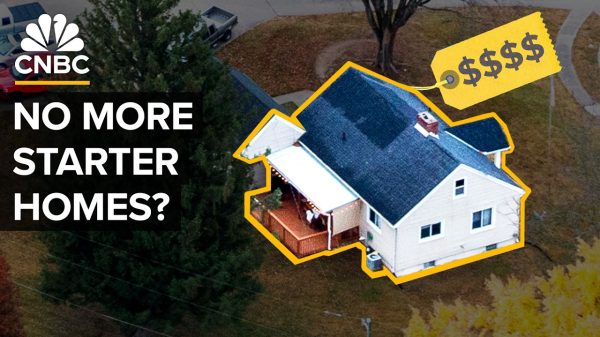I was involved in a workplace accident that rendered me disabled and recently received a lump sum of $185,000 after deductions for lawyer fees etc. In 2011, when I was injured, I was facing foreclosure and couldn’t take care of our minor children, so life for me fell apart. In 2014, I began collecting Social Security Disability Insurance.
During our divorce, “Jim” filed several motions for the support of our two children. Having no money to hire a lawyer to defend myself, I answered one motion and let everything go because I was recovering for major spinal surgery and couldn’t handle the stress. I was awarded $17,000 in tuition by the judge in 2014.
Jim has earned $140,000 a year for the past 10 years. I have earnings of $28,000 per year plus a two-hour-a-day job I took for extra money. I have limited mobility and can’t sit up or stand for a long period. In 2017, my lawyer lost a case fighting for a change of circumstances. Jim took me to court and won a settlement of $78,000 against me.
“‘I have limited mobility and can’t sit up or stand for a long period.’”
I am facing a bill of $107,000 for care that Medicare won’t cover — expenses like hiring an aide and, possibly, future legal bills if the provider refuses to approve care, plus the upkeep of a house that needs $20,000 to $30,000 in maintenance because I haven’t been able to sustain an income that would support living in the highest-taxed state in the country.
I have $193,000 equity in my home, and owe $140,000. Monthly rents start at $1,700 in my town. Currently, I pay $1,340 per month in mortgage repayments, and bills total $3,200, if I keep things tight. I receive $2,600 after Medicare deductions. I own a 2010 Honda with over 103,000 miles on the clock and, where I live, you can’t go without one.
I am 64 years old, and I have chronic pain daily, and need life-long extensive pain management. Life, I might add, is not easy. I have low credit-card debt ($2,000) and property taxes are frozen at $6,000 per year for my 1,000 square-foot property. Any words of wisdom to calm my fears of a financial collapse?
Trying to Stay Afloat
Dear Trying,
The first thing you can do to avoid a financial collapse and an emotional collapse is to make a plan to deal with this one day at a time. Outlining all of your challenges in one letter, and viewing them as one big mountain to climb will only lead to more anxiety and feelings of hopelessness. You’ve come a long way. You have a long way to go, but you can do this in 24-hour periods, one step at a time.
If you have more legal problems with your husband, look into free legal aid. Your state’s bar association or local legal-aid office should be able to give you some advice on where you can get face-to-face advice with a financial counselor. Pay your high-interest debts (like your $2,000 credit-card debt) and mortgage first, and look at ways to cut your monthly expenses.
The National Foundation for Credit Counseling is a nonprofit financial-counseling organization that can help you put together a budget. The American Consumer Credit Counseling also helps people in your position. There are 12-step support groups, including Debtors Anonymous, offering a safe space to talk about your background and hear other people’s stories.
You could also consider taking in a roommate, and look into a reverse mortgage on your property, says Cary Carbonaro, senior vice president and director of women and wealth at Advisors Capital Management in Winter Garden, Fla. Also known as Home Equity Conversion Mortgages, reverse mortgages are loans available to homeowners who are 62 or older.
“You could also consider taking in a roommate, and look into a reverse mortgage on your property.”
Reverse mortgages allow you to tap equity in your home. They are called reverse mortgages because the lender pays the borrowers, not the other way around. To qualify, you must own your home outright or have a mortgage balance that is low enough to be paid off with the proceeds of the reverse mortgage. If this doesn’t work for you today, it could be an option in the future.
They are popular for seniors who have equity in their home, who may have debts or suffered investment losses in recent years. There have been 27,397 reverse mortgages processed so far this year versus 64,489 for all of 2022, according to data from the U.S. Department of Housing and Urban Development compiled by NRML.They hit a peak of almost 115,000 in 2009.
Investigate senior support services in your town and state that provide everything from transportation to medical appointments to Medicaid waivers where seniors can receive home care rather than being admitted to a hospital. New York State, among others, has food-delivery services for people who have difficulty preparing their own meals.
Each aspect of your financial life should be rated in order of importance, and whether it’s a short- or long-term goal. All the pieces together appear unsurmountable, especially with your chronic pain. Enlist the support of your children and/or friends for advice. You don’t have to go through this alone. The best compliment you can give someone is to ask them for advice.
Readers write to me with all sorts of dilemmas.
By emailing your questions, you agree to have them published anonymously on MarketWatch. By submitting your story to Dow Jones & Co., the publisher of MarketWatch, you understand and agree that we may use your story, or versions of it, in all media and platforms, including via third parties.
The Moneyist regrets he cannot reply to questions individually.
More from Quentin Fottrell:
Do children get 529 accounts in a divorce? My in-laws opened two plans for our kids, but their marriage is on the rocks.
My husband and I have $6 million in retirement and zero debt. What do you recommend for the couple who has everything?
Our older son, 37, is an artist and puts $1,000 a month on our credit card. Our other son, 35, is self-sufficient. Is that unfair?
Read the full article here













